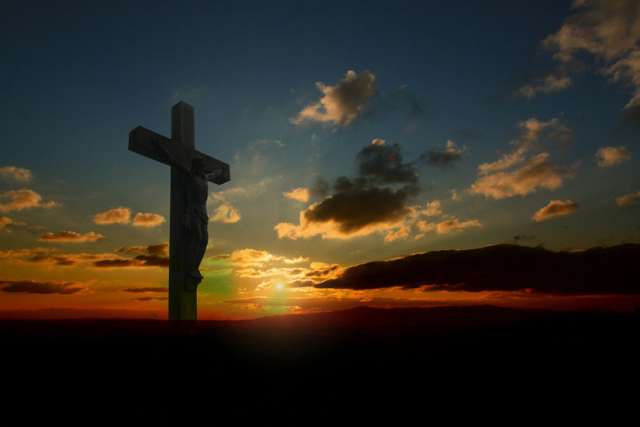The best part of winter is getting out the seed catalogues. This we did back in February, when the thermometer was staying well below zero and the snow was well above waist-high. When “frozen” and “hard” are all around us, the promise of beauty and blossoms to come is mesmerizing.
The cycle of life and death, and death and life, we all can see. We can exult in warm spring weather though we know winter will come again. It’s a pinnacle of human achievement to understand these movements of life, and live them well. Even more, to recognize hints of a Creator, someone hidden within the creation we dwell in, and within our own capacity to relate to it.
This is much. Yet it’s not enough. It’s not what we proclaim and celebrate at Easter. It’s not what changed the lives of the apostles that first paschal dawn, nor what changed the face of the Earth forever. It’s something we couldn’t discover or figure out on our own, couldn’t work our way toward or climb to. It’s not because of seeds in February and new leaves in spring, and not about eggs of chicken or of chocolate.
“What you seek isn’t here.” So the women are told when, expecting to meet a dead body in a borrowed grave, instead they’re confronted by visions of white cloths and angelic figures. What! Not here? They’ve walked such a long way already, meeting and accompanying Jesus and the disciples, walking the way of the cross, witnessing the horror in His torment and death. Then, two nights later, getting up out of their cold hopeless beds, venturing into the lightless night to the grave where the broken body and broken dreams had been laid.
Their love, fidelity and courage are astonishing, especially if they were risking arrest and crucifixion by visiting Jesus’ tomb. It was, after all, sealed and guarded, the burial place of a criminal and enemy of the state. Then there’s the grief and sorrow they were facing up to at the new-made grave of such a beloved person. And with Him, their hope of redemption: “we had hoped,” said another disciple later that same day, with bleak finality.
I don’t know if they also lost their hope in themselves or one another, but it can’t have looked promising. The disciples’ performance on Calvary was not one to inspire the hope that they could carry on Jesus’ work without Him. Of the many kinds of hell we encounter on Earth, which is greater than the human capacity to betray what’s dearest to us, the blaming and self-recrimination that may follow?
And after all that, the unforeseen news told by an unearthly voice, new and confusing. “He has been raised. He is not here.” They are stopped short. Not here? Our hope hasn’t been buried forever in this terrible tomb? Our beloved isn’t among the outcast and the dead?
The news the world awaited since the beginning of time, delivered in the Paschal dawn, breaks not with joy but with bewilderment and fear, puzzlement and tears. That’s all right. Joy comes too, welling up like a fountain, certain as the sun rising over the horizon. A joy that has no end, but fills and overflows the world. The meaning of those words, “He is raised,” takes flesh as He did. Christ is risen. Out of hell, new life has risen up, bringing out with it Adam and Eve. He holds them by the hands, as He holds us, pulling, drawing us out of hell into life abundant.
Can we learn this?
One day during Lent, I beheld the tears of a woman weeping for her grown-up son. She was palpably suffering with him the pain he felt, suffering for him the pain he didn’t know he was in. She knew the smell and taste of hell. Why did her tears, so beautiful in the depth and power of her love, remind me of the tears of Mary Magdalene, weeping at the moment she heard, living and present beyond death, the voice of her beloved?
We know the taste of Alleluia; our lips are formed for it. We know the Easter light; our eyes are designed to behold it. It’s confusing and perplexing, at times, to sing Alleluia here amidst the shadows of sin and sadness, but its sweetness is not lessened for that.
Dare we let the taste be on our tongues, in our mouths and words, His touch be on our hands, in our work and lives? Dare we carry the Resurrection even into hell, the various kinds of hell we meet?
Yes, the best part of winter is getting out the seed catalogues. But it’s got nothing on spring.
(Marrocco can be reached at marrocco7@sympatico.ca.)


